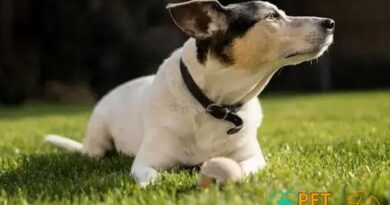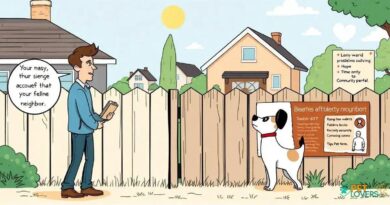What is Noise Exposure
What is Noise Exposure?
Noise exposure refers to the amount of noise that an individual is subjected to over a specific period. In the context of dogs, this can encompass a variety of sounds, including loud music, fireworks, construction noise, and even the sounds of bustling urban environments. Understanding noise exposure is crucial for pet owners, as excessive noise can lead to stress and anxiety in dogs, impacting their overall well-being.
Types of Noise Exposure
There are two primary types of noise exposure: chronic and acute. Chronic noise exposure occurs over an extended period, such as living near a busy road or in a loud household. Acute noise exposure, on the other hand, refers to sudden, loud noises, like thunder or fireworks. Both types can have detrimental effects on a dog’s mental and physical health, making it essential for owners to recognize and mitigate these risks.
Effects of Noise Exposure on Dogs
Noise exposure can lead to various behavioral issues in dogs, including increased anxiety, fear, and aggression. Dogs may exhibit signs of distress such as barking excessively, hiding, or attempting to escape from the noise source. Long-term exposure can also result in chronic stress, which may manifest as health problems, including gastrointestinal issues and weakened immune responses. Understanding these effects is vital for maintaining a dog’s health.
Signs of Noise Anxiety in Dogs
Recognizing the signs of noise anxiety is crucial for pet owners. Common indicators include trembling, panting, drooling, and pacing. Some dogs may also try to hide or seek comfort from their owners during noisy events. In severe cases, dogs might even exhibit destructive behaviors, such as chewing furniture or scratching at doors. Being aware of these signs can help owners take proactive measures to alleviate their pets’ discomfort.
Preventing Noise Exposure
Preventing noise exposure involves creating a safe and quiet environment for dogs. This can include using soundproofing materials in the home, providing a designated quiet space for the dog, and using white noise machines to mask disruptive sounds. Additionally, pet owners should consider their dog’s lifestyle and avoid exposing them to known noise triggers whenever possible, especially during sensitive periods like thunderstorms or fireworks displays.
Desensitization Techniques
Desensitization is a technique that can help dogs become more accustomed to certain noises. This involves gradually exposing the dog to the sound at a low volume and rewarding calm behavior. Over time, the volume can be increased as the dog becomes more comfortable. This method requires patience and consistency, but it can significantly reduce a dog’s anxiety related to specific noises, making it an effective strategy for many pet owners.
Consulting a Veterinarian
If a dog shows persistent signs of anxiety due to noise exposure, consulting a veterinarian is advisable. A vet can provide insights into potential underlying health issues and recommend behavioral therapies or medications that may help alleviate anxiety. In some cases, a referral to a veterinary behaviorist may be necessary for more specialized care. Early intervention can lead to better outcomes for anxious dogs.
Noise Exposure and Training
Incorporating noise exposure into training routines can help dogs build resilience. Training sessions can include controlled exposure to various sounds, paired with positive reinforcement. This approach not only helps dogs learn to cope with noise but also strengthens the bond between the dog and owner. Consistent training can lead to a more confident and well-adjusted pet, capable of handling everyday sounds.
Community Awareness and Support
Raising community awareness about noise exposure and its effects on dogs is essential. Pet owners can advocate for quieter environments, such as noise ordinances in residential areas or designated quiet zones in public spaces. Additionally, sharing experiences and strategies with other dog owners can foster a supportive community that prioritizes the well-being of pets, ultimately leading to a healthier environment for all.



